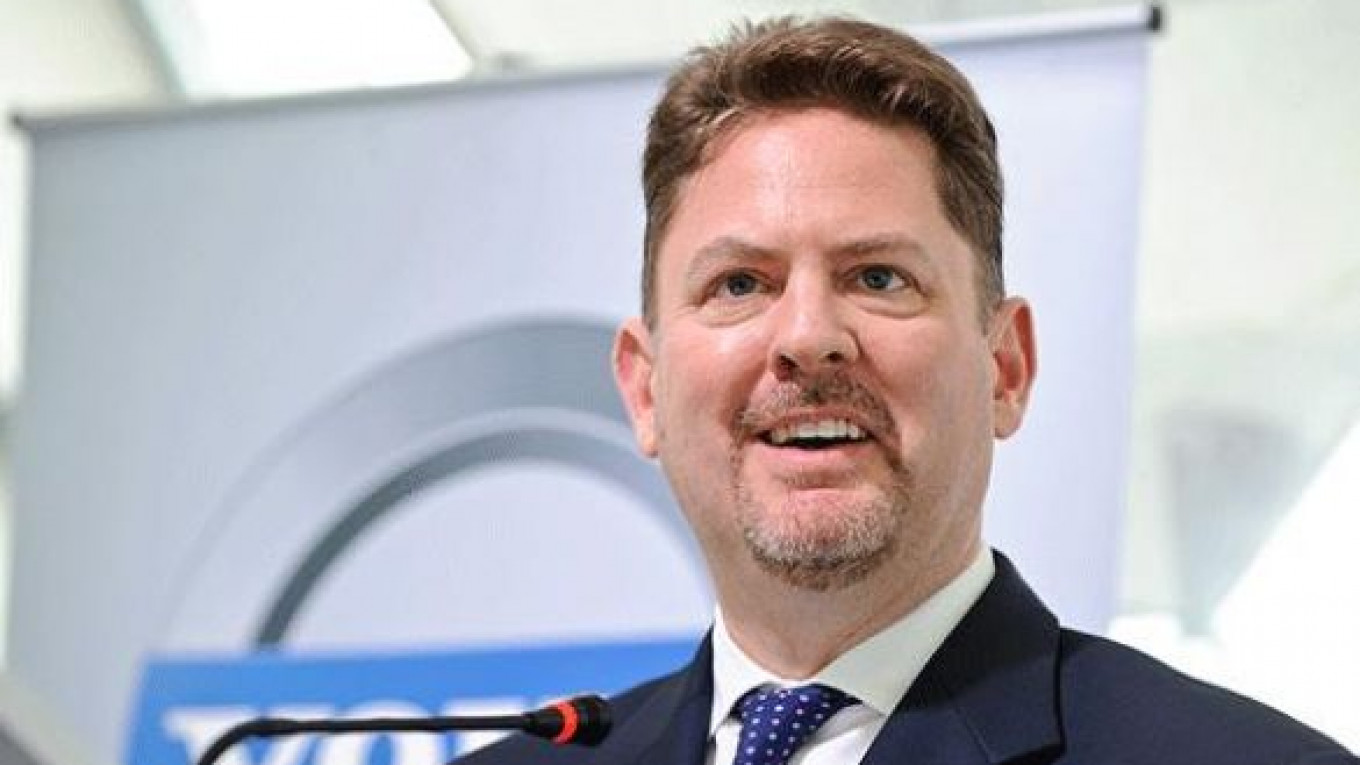A senior Volvo executive said foreign construction equipment producers had good reason to set up local production, even though Russia pledged to slash import duties as part of its membership in the WTO.
The government has previously resorted to customs barriers to lure foreign investment, as in the case of the automotive industry.
With construction machines, producers want to be closer to the customer regardless of the removal of trade restrictions, said Pat Olney, worldwide president of Volvo's construction equipment unit.
"The old thinking was that you should make one product in a global plant ... and then ship it around the world," he said in an interview. "It doesn't work any more."
Volvo opened an excavator assembly plant outside Kaluga earlier this month.
One reason for being closer to the customer is that the cost of delivering the equipment could rise over time as oil could get more expensive, Olney said.
Also, customers now expect faster lead time, he said.
"They don't want to wait five weeks for something to come over the ocean and then another week for customs and so on," Olney said. "They want to order a machine that's built locally but to global quality standards."
In addition, making a product close to customers helps the company to learn about their needs, he said.
"So this whole idea of investing in facilities in the main markets is one which is now the backbone of our strategy," Olney said.
The new Volvo plant is sourcing its components from Sweden and South Korea but is betting on local suppliers in the future.
Even with the current arrangement, Volvo will cut delivery time for its equipment as it builds up parts stocks, Olney said.
Olney said he met some prospective local suppliers and promised Volvo's backing.
"They clearly have the ambition to develop world-class quality, but they need support," he said. "We will bring supplier development expertise to the market."
Volvo aims to source more than 50 percent of content for its new factory from within Russia eventually, starting with large, bulky parts that are not as complex to produce, Olney said.
The company isn't planning this in order to avoid import duties, he said.
"Even with zero duties, our strategy is we should make at least half of the content of the machine locally in order to cut down the lead time; in order to build up support for the after market locally, and to have a critical mass that is cost effective in the country," he said.
Contact the author at medetsky@imedia.ru
A Message from The Moscow Times:
Dear readers,
We are facing unprecedented challenges. Russia's Prosecutor General's Office has designated The Moscow Times as an "undesirable" organization, criminalizing our work and putting our staff at risk of prosecution. This follows our earlier unjust labeling as a "foreign agent."
These actions are direct attempts to silence independent journalism in Russia. The authorities claim our work "discredits the decisions of the Russian leadership." We see things differently: we strive to provide accurate, unbiased reporting on Russia.
We, the journalists of The Moscow Times, refuse to be silenced. But to continue our work, we need your help.
Your support, no matter how small, makes a world of difference. If you can, please support us monthly starting from just $2. It's quick to set up, and every contribution makes a significant impact.
By supporting The Moscow Times, you're defending open, independent journalism in the face of repression. Thank you for standing with us.
Remind me later.






